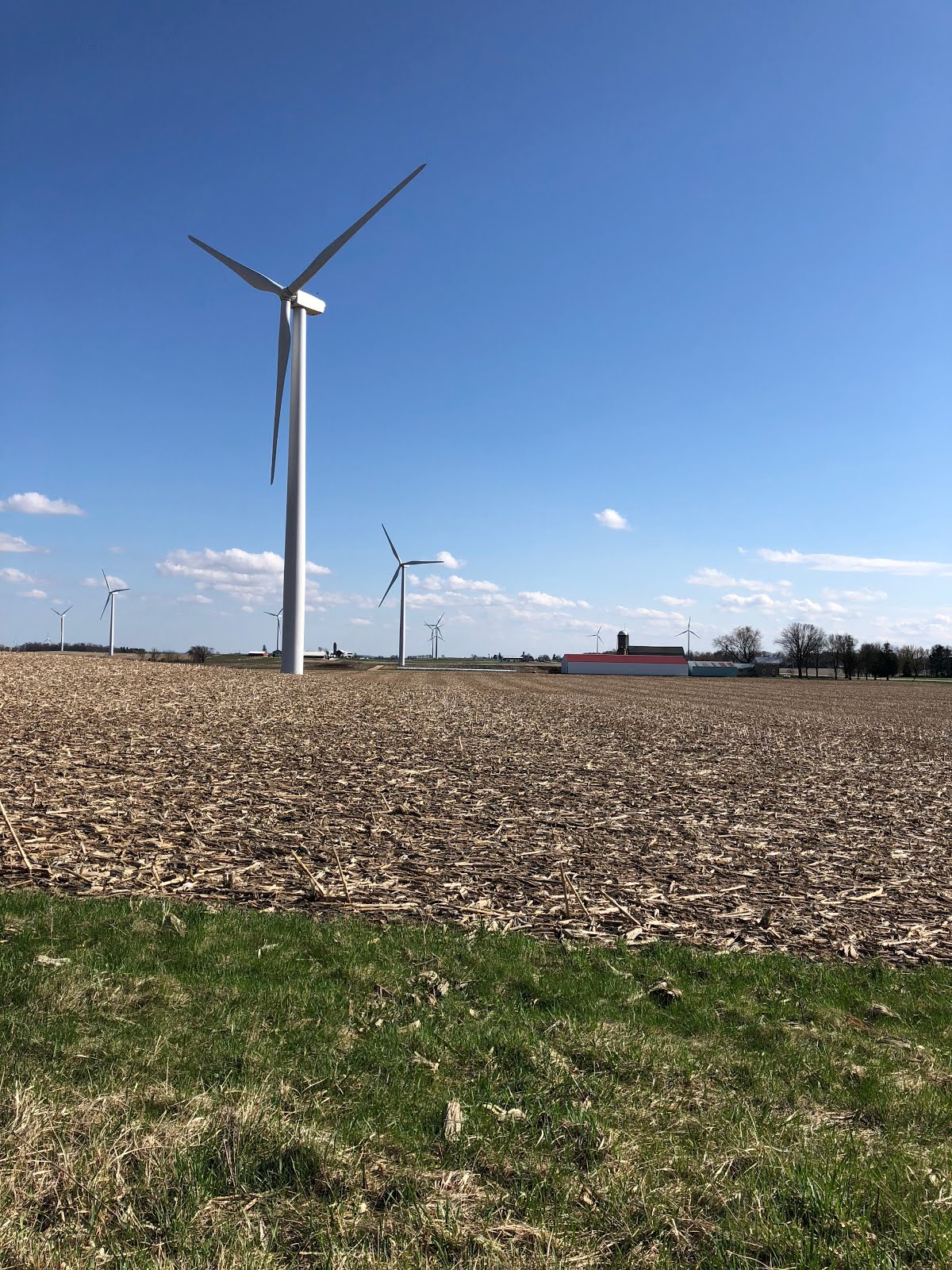SEWRPC At The Crossroads
Readers of this blog know that I have written a great deal about the Southeastern Wisconsin Regional Planning Commission, and I won't further bore you all with citations to letters and op-eds I've also written about SEWRPC going back a decade and more.
I'll just summarize it one sentence:
The regional planning commission spends millions of public dollars every year on studies and staff that do not add value to the heart of its seven-county region - - the City of Milwaukee - - thus helping perpetuate the region's corrosive racial and economic discrimination.
That said, it's important to take note of some very recent developments that have placed SEWRPC right at the top - - finally - - of a political tipping point.
We'll know soon if SEWRPC can make some internal changes that could at least begin its reform and save its standing, reputation, credibility and effectiveness.
But self-preservation is tough when denial is strong and decades of insular thinking make accurate perception and self-analysis impossible.
Regrettably, the early signs are that SEWRPC does not grasp the severity of the political problems it faces, having so isolated itself intellectually and geographically from so many constituencies that it no longer sees the realities in the region, and that are surrounding SEWRPC, too.
For a planning agency, that's the end of the line.
After a 2004 public hearing in Milwaukee before federal regulators who must every four years re-certify SEWRPC as the region's ubertransportation planning agency, speaker-after-speaker criticized SEWRPC's disconnections from low-income and minority residents.
In response, and at the urging of the regulators, SEWRPC created in 2007 a body called the Environmental Justice Task Force, named one of its commissioners the chair, and appointed citizen representatives to advise the agency about making its work more relevant to these otherwise disregarded constituencies.
After several meetings, the Task Force last Tuesday expressed its discontent with SEWRPC by approving a resolution 8-1 that recommended SEWRPC include an independent socio-economic analysis in any SEWRPC plan before its approval by the full commission.
SEWRPC's Executive Director Philip Evenson strongly opposed the resolution, saying before the vote that it "offended" him and that he took it "personally."
If, and I emphasize, if, SEWRPC's full 21-member board - - on which the City of Milwaukee has zero representation - - does not accept the recommendation of its own Task Force, it would be telling its members, and the public, and the agency's federal regulators that the SEWRPC commitment to citizen input in the planning process, and to social justice in this region, is a sham.
Why did I say that the early signs are not positive for SEWRPC grasping the peril that is approaching?
Because the next federal review before the federal transportation regulators happens to be Wednesday evening, from 5-7 p.m., at the Downtown Transit Center, 909 E. Michigan Ave. - - the very spot where, in 2004, the public came out en masse and showed the regulators that SEWRPC needed some basic changes.
But the 2008 hearing has essentially been cancelled, with SEWRPC's participation.
This time, there will be no public speaking truth to power.
Instead of a formal hearing, SEWRPC and the regulators are substituting an open house, where citizens can ask questions of federal and SEWPRC staffers spread around the room at tables - - and if a person wants to submit testimony, they can go to another room and speak privately to a court reporter.
So at the very moment that SEWRPC needs to be embracing public dialogue, and incorporating public opinion from the grassroots into its work and attitudes, it is running the other way.
After having openly resisted its own Task Force just a few days earlier when it had the courage to suggest that SEWRPC's work needed socio-economic analysis from outside, independent experts.
SEWRPC is on the verge of beginning a housing study for the region - - an issue it has ducked since its last major housing study was released in 1975.
If there ever was an issue that required comprehensive socio-economic planning analyses in this region - - often described as the country's most segregated, and where transit deficits further limit housing and employment options - - it would be housing.
But SEWRPC is resisting public input into its work and direction by refusing to release a draft of the housing study work plan - - despite saying it has been thinking about it for several years and working on a document for months.
If SEWRPC's housing study misses the mark by too-heavily relying on the 1975 study - - which reaffirmed in style, structure and findings the agency's overall land-use plan that has been in place as the region has sprawled away from Milwaukee - - the agency will be broadcasting again the message that fundamental change in its approach and production are not in the cards.
The water advisory study omitted a socio-economic analysis of moving Lake Michigan water from Milwaukee to distant suburbs that are primed for more annexations, job creation and housing construction where there is little-to-no transit.
SEWRPC cannot and should not make that mistake again when it comes to housing.
In other words, if the housing plan is being drafted first-and-foremost to be just a formulaic, additional element of an ineffective land use plan - - why should anyone think SEWRPC would then create ground-breaking housing recommendations to confront and then tackle discrimination, along with gentrification, the mortgage industry meltdown, green construction, sustainability, transit needs and all of housing's nuances and connections to the full range of "socio-economic" realities?
The one-paragraph "Fair Housing Environment" section, which appears to be a decent start, should be vastly expanded in tone and intention. And moved towards the front of the work plan as a primary priority, given the region's well-documented barriers through zoning, transportation and employment deficits to true "fair housing."
That is where and why SEWRPC should have let the Environmental Justice Task Force work on the housing work plan draft, and also welcomed, not fought, the Task Force recommendation that all studies contain independent consultation.
[Sidebar on the discrimination question: Founded in 1960, SEWRPC now has a professional staff of 49, three of whom are non-white, according to its current Affirmative Action report. Enough said.]
The Fair Housing Environment section now reads:
"Fair housing practices must be followed to ensure all households that potentially want to reside within specific areas of the region, such as households wanting to locate close to employment centers, have the opportunity to do so. Federal and State housing laws make housing discriminiation illegal against any individual in a protected class [footnoted to a definition of protected classes]. These laws also address a wide range of unlawful housing acts ranging from refusing to rent, insure, construct, or finance housing to printing, publishing, or displaying advertisements or notices that indicate a preference affecting a protected class. Barriers to fair housing practices in the Region and sub-areas of the Region will be identified through analysis of demographic data, housing supply inventory data, community housing policies and regulations, and lending practice as it is available. Programs promoting fair housing practices, such as State and Federal laws and programs identified in community consolidated housing plans will also be identified."
Alot of identification, inventorying and description. A start, as I said, but to what ends, and with what vigor towards change?
So I go back to how SEWRPC's managers handled the recommendation from its Environmental Justice Task Force, and how it helped kill the public hearing next Wednesday.
Not hopeful signs, suggesting that SEWRPC is heading for the bunker where there is no sunshine.
For the umteenth time, I think that Milwaukee needs to move towards an alternative agency to get the public advocacy and policies it needs, and that its taxpayers deserve.
More here.









No comments:
Post a Comment